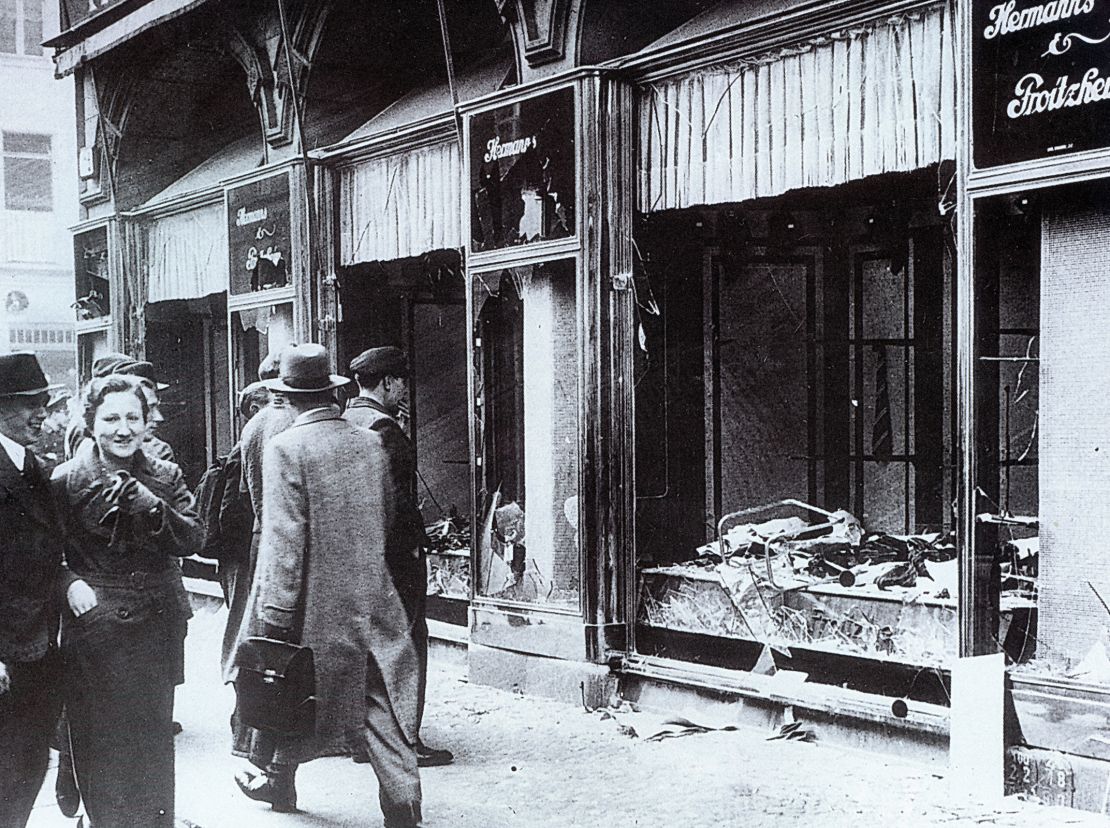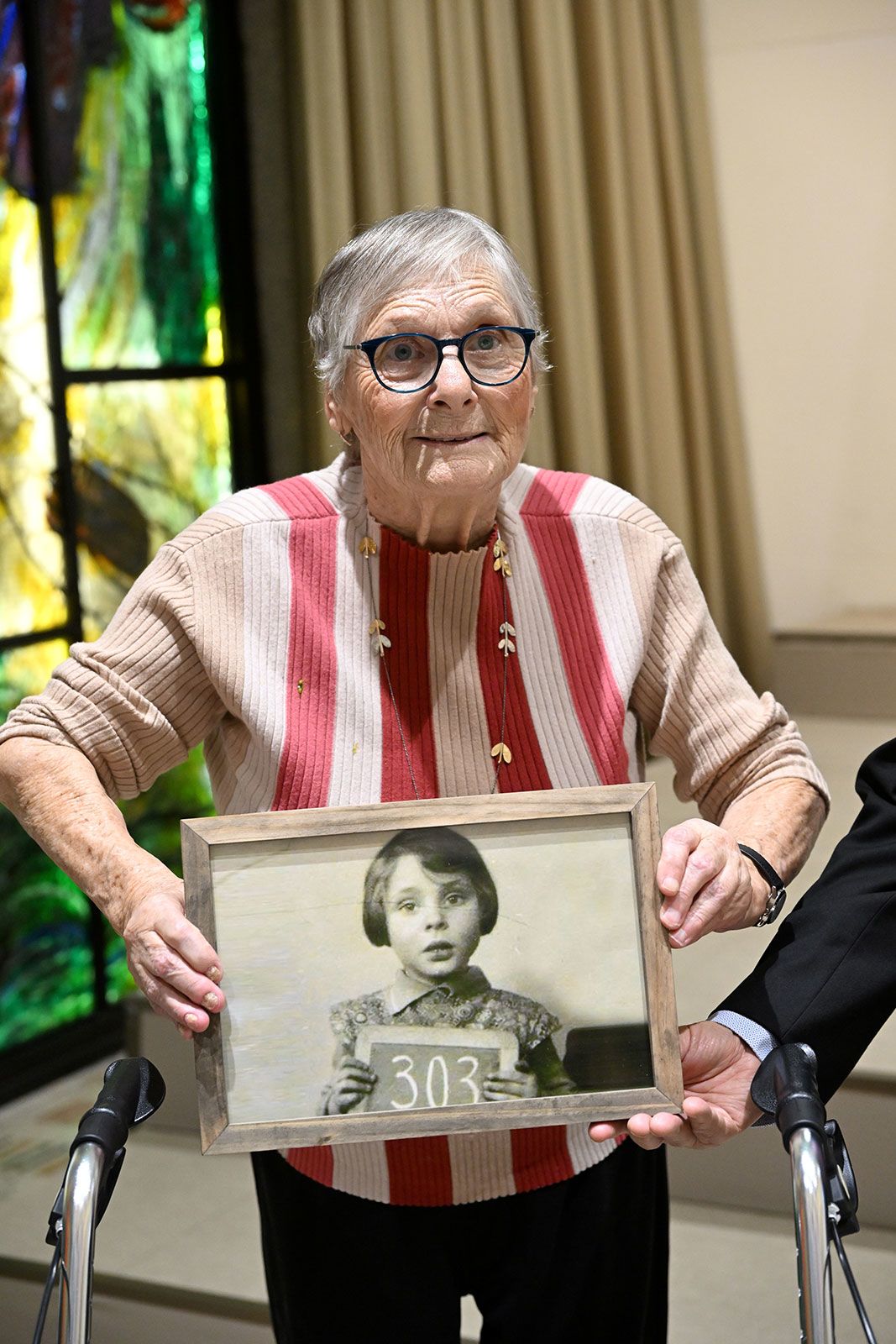Editor’s Note: Mirjam Beit Talmi Szpiro is a Holocaust survivor from Kibbutz Zikim, Israel. The views expressed in this commentary are her own. Read more CNN Opinion.
CNN
—
As we mark International Holocaust Memorial Day, I find myself compelled to share a story, my story, bookmarked by some of the darkest chapters in history.
I was born in Germany in 1935. From Kristallnacht in Nazi Germany to the October 7 attack on my Gaza border community of Kibbutz Zikim, my life, through no choice of my own, has been a testament to both destruction and terror, and resilience and survival.
And so, my story is one that must be told and heard. But it must be told more than ever on this Holocaust Memorial Day.
I was just three-and-a-half when the flames of Kristallnacht reached my family. I was young but the memories of that night are etched into my soul — hiding under my parents’ bed and smelling the smoke from outside as SS soldiers broke down the door and took my father away.
He never returned.
The Kindertransport then became our lifeline, rescuing my sister, brother and me from the horrors that awaited my father in Auschwitz and my mother in the Lodz Ghetto, where they each died.
I arrived in Britain in 1939, a child struggling with the loss of my parents and my homeland. There, adaptation became my shield, and although the pain never went away, I embraced a new life.
A decade after the war, I immigrated to Israel, a land that welcomed me and became my home. A place of relative calm. A place, for me, of safety.
Until October 7.
Just a few weeks short of the 85th anniversary of the Kristallnacht attacks, Hamas unleashed its own attacks on the Israeli border communities, brutally slaughtering 1,200 people and taking over 250 hostages. The tranquility of my kibbutz turned into a fierce battleground as gunfire broke the air, shattering both glass and my sense of refuge I had found there.
In the face of the terror, I told myself, “I’m not afraid. I don’t know what fear is. I’m accustomed to this.” Hiding in my safe room for 12 hours after hearing the gunmen outside, I couldn’t help but feel that history was repeating itself. Thanks to the bravery of the military unit in Zikim, I and the rest of the kibbutz members survived. But again, so many others didn’t.
Two days later, as we were still discovering the details of the tragedies that unfolded in ours and 21 other communities, I left my home, packing in just half an hour with a silent sense of déjà vu.

It was the second time in my life I was forced to leave my home, but, this time, I refuse to leave for good. And I refuse to be a refugee in my own land. I have been living out of a suitcase in a hotel room for nearly four months, but I refuse to lose hope.
On Wednesday, I was honored to receive an award, together with other Kindertransport survivors, recognizing our struggle and resilience as children at the Israeli president’s residence in Jerusalem from the International March of the Living. This important recognition serves a form of historical justice to the stories of 10,000 Jewish children who became refugees escaping from the horrors of the Holocaust, leaving everything behind, including our families.
But I should not have had to experience such horrors twice. No one should have to experience them once.
So, for me, this Holocaust Memorial Day is different. It does not just represent the past, but also the present. The flames of Kristallnacht may have gone out, but other fires, lit on October 7, have again burned homes and lives and dreams.
Get Our Free Weekly Newsletter
It is our job to put out those fires. But it is also our job to remember the destruction they caused, and to work to rebuild what was lost.
This time, I am not helpless. And this time, I am not hopeless. I will return home. I planted a tree in my garden just days before the attack and I will return to tend to it.
And, in my heart of hearts, I know my grandchildren will yet eat from its fruit.
Credit: Source link




